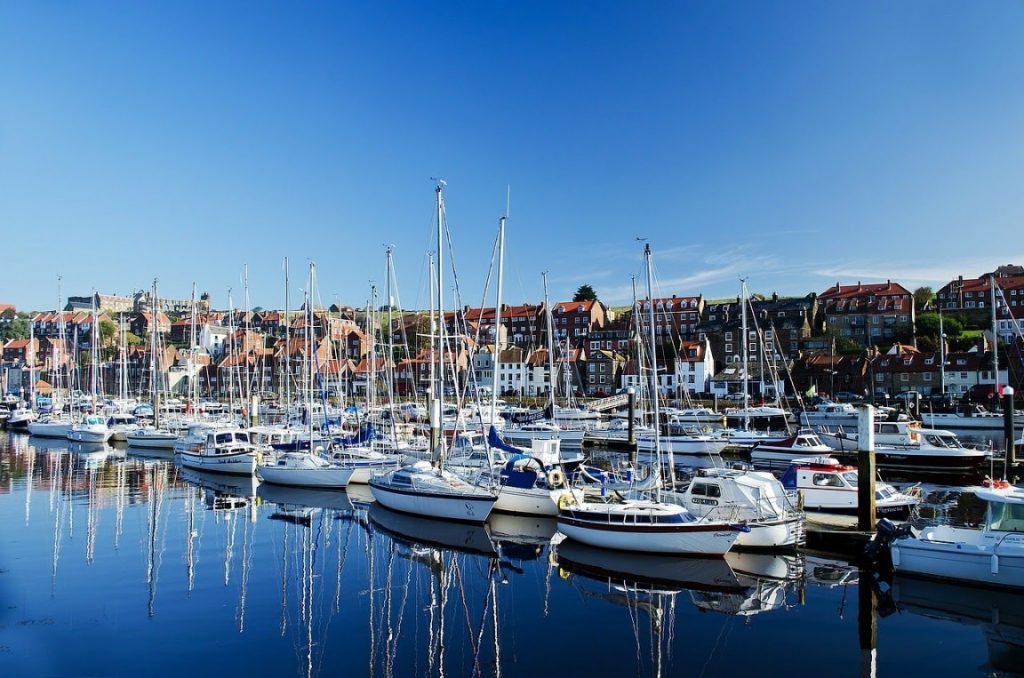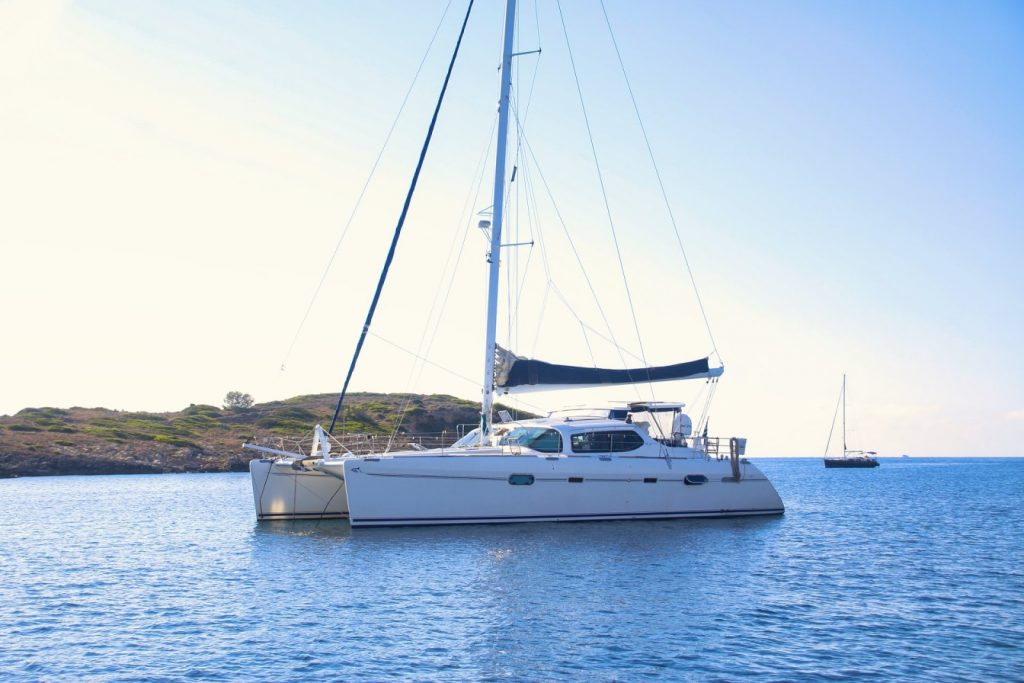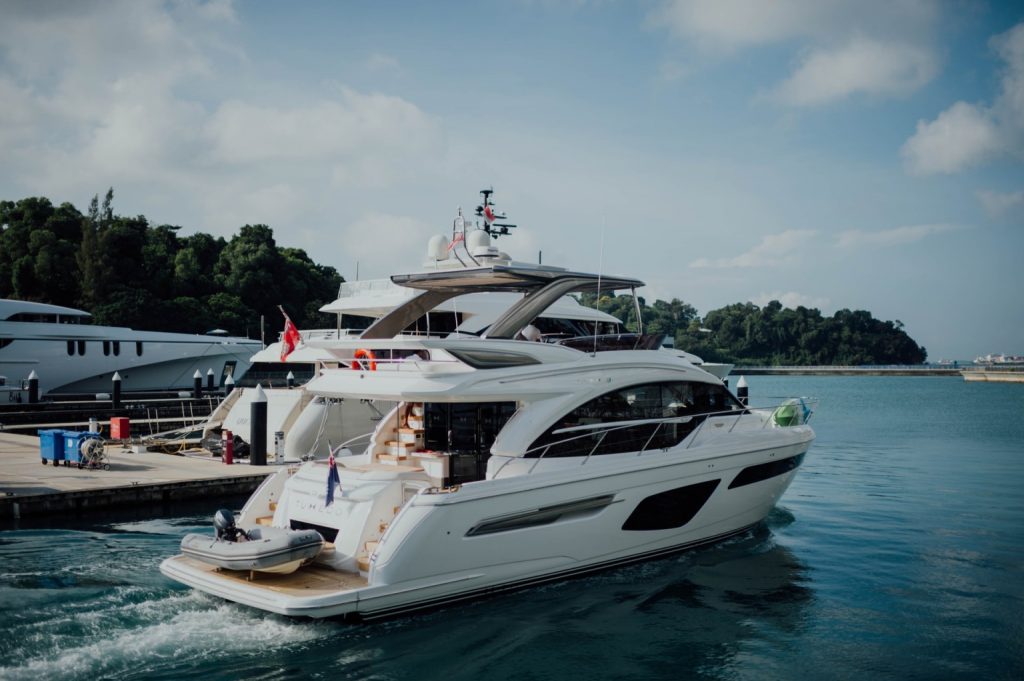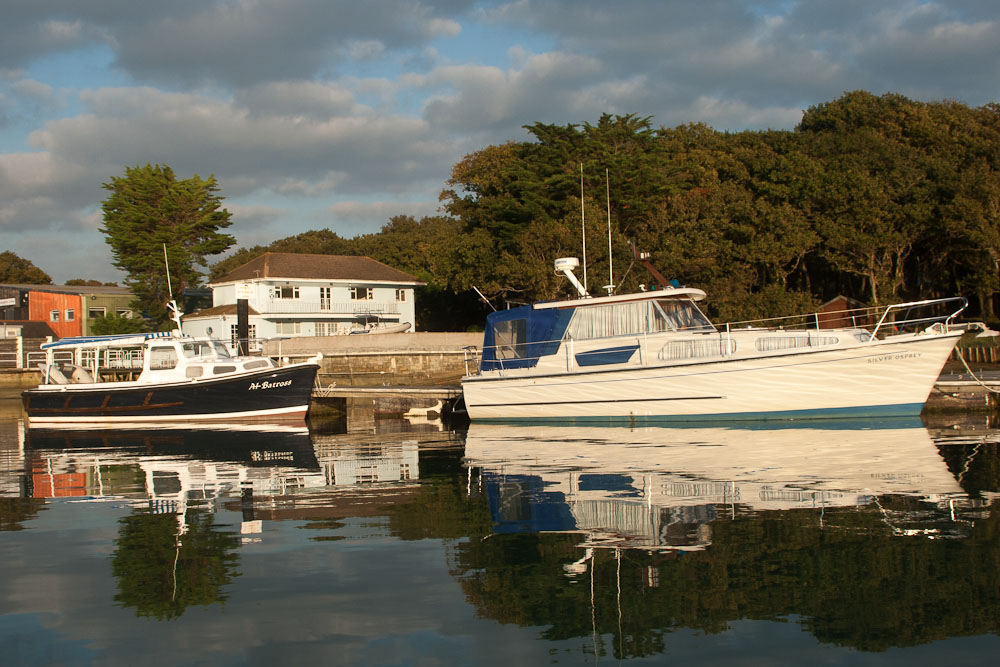The Association of Brokers and Yacht Agents (ABYA) offers some expert guidance for UK boaters who are thinking of owning a boat for the first time.
Owning a boat for the first time can be a wonderful experience. The UK is a great place to go boating and has a buoyant and varied used boat market that can make buying a boat almost as enjoyable as boat ownership itself. But if you’re planning on buying and owning a boat in the UK, there are several issues you need to address to make sure you get a sound and suitable boat that you and your family can enjoy to the utmost.
 Buying a boat in the UK can almost be as enjoyable as boat ownership itself, as it has a thriving and diverse used boat market.
Buying a boat in the UK can almost be as enjoyable as boat ownership itself, as it has a thriving and diverse used boat market.
Narrow down your boat choice
In order to buy the right boat, you need to be clear about what you intend to do with it. For instance, do you enjoy al fresco parties and sunbathing? Are you into fishing or watersports? Do you favor generous day spaces or comfortable sleeping facilities? Are you keen to invite guests onboard and if so, how many? Do you want to go day boating in the summer or would you prefer to enjoy your boat all year round? While you’re investigating these key questions, make sure you don’t forget about the people you intend to go boating with. If that’s your family, find out what they want and try to reconcile their wishes with your own. Boatbuilder and brokerage websites are now extremely useful resources, often with detailed pictures and videos, plus plenty of stats and layout diagrams, so it’s easier than ever to narrow down a size and type of boat that is likely to work for you.
Break down your budget
The upfront cost of buying a boat isn't the only budgetary issue to consider. You need to think about the costs of owning the boat too. For a lot of people, boat ownership involves finance, as well as berthing, maintenance, servicing, fuel, insurance, and training. To put yourself in a good position to get the best out of your new boat without concerns over affordability, it is therefore prudent to avoid spending more than 80% of your total budget on buying the boat itself. And if you do need to take out a loan, be aware that, here in the UK, specialist marine finance can be quite expensive. As a mobile and depreciating asset, a boat is a substantial risk when used as security for a loan, so if you’re keen to borrow larger sums, with more flexible terms and more affordable rates, it might pay to investigate either an unsecured mainstream loan or a loan secured against a static asset like your house. If you’re buying a boat for the first time, this also helps simplify the process by putting you in the position of a cash buyer. That means no requirement to satisfy your lender in regard to a boat’s value and no requirement to include the lender’s interest in your insurance policy.
 A boat's upfront cost isn't the only budgetary consideration. You should also consider the costs of owning a boat.
A boat's upfront cost isn't the only budgetary consideration. You should also consider the costs of owning a boat.
Find a place to keep it
To avoid any nasty surprises later on, it’s always best to check availability, facilities, and prices at your favored marina before going ahead with a boat purchase. Storing your boat at home and towing it to a variety of destinations can certainly help increase your fun and mitigate your costs, but you will still need to factor in the price of a trailer and tow bar, plus some security devices to make sure it doesn’t become a target for thieves. And if you prefer to use a professional storage facility, have you considered the Dry Stack option? Though it might seem relatively expensive, the benefits in terms of convenience, security, a clean-running hull, and optimized long-term value retention can be difficult to ignore.
More information: Mooring guide: where to keep the boat
Conduct some boat viewings
Once you know what you want, what you can spend, and where you’re going to keep it, it’s time to talk to a dealer (for a new boat) or a broker (for a used one). A good broker will have the knowledge, the experience, and the contacts to identify the best yacht for your needs, as well as to suggest a variety of used yachts you might not have considered. When you’ve found a specific boat you want to take a look at, it’s then your job to gather sufficient evidence about it to satisfy yourself that it is worth buying. While a broker should have plenty of information on a boat’s history and condition from the seller, a physical viewing is of course a key part of that research. When you view the boat, make sure you take your family with you. Ask plenty of questions and take plenty of photos so you can revisit the details later on in the comfort of your own home. A pandemic-related upsurge in demand has made buying a boat in the UK more competitive than ever before, so if you’re genuinely interested in taking the deal forward, it’s wise to act fast.
 Once you have found a boat you want to check out, you need to gather all evidence about it to be satisfied that it is worth buying.
Once you have found a boat you want to check out, you need to gather all evidence about it to be satisfied that it is worth buying.
Take the deal forward
If you’re buying a new boat, you'll be asked to place a deposit. The dealer will issue any part-payment documents, organize your optional extras, give your boat a pre-delivery inspection and supply a manufacturer’s warranty. A second-hand boat sold by a private individual won't generally have a warranty so, whether you’re buying through a broker or not, it’s best to arrange a Sale and Purchase Agreement, setting out the terms of the sale for both parties. This will include an inventory of the equipment to be left on the boat, as well as any documents relating to title, finance, registration, tax, and maintenance. It should also state a provisional price that remains subject to the completion of a survey and a sea trial - but be aware that you will only have a limited timeframe to complete your investigations. If you’re not buying through a broker, you can download an approved Sale & Purchase Agreement template from the RYA, creating a sound legal reference point to which both you and the seller can refer after completion of the sale.
Commission a survey
A Pre-Purchase Survey is a central part of the research process. It’s basically a professional assessment of a boat’s condition and value, identifying the good and bad points of a craft, with an itemized list of issues that need correction. By indicating the urgency of any problems, it provides the buyer with a solid basis for renegotiating the ‘subject to survey’ price or insisting on remedial work prior to completion. On compact ‘project’ boats, of course, appointing a marine surveyor might be overkill but, in most cases, it’s a useful way to buy extra peace of mind for you, your finance company, and your insurance provider. As the UK’s two key bodies for marine surveyors, the Yacht Designer’s & Surveyors Association and the International Institute of Marine Surveying are good places to start looking for an experienced marine surveyor who specializes in the specific type of boat you’re considering.
Conduct a sea trial
A sea trial is designed to validate your findings and to examine the things that can’t be assessed at the marina. As the buyer, you will usually be expected to pay for the cost of any fuel and services incurred during a sea trial - but it’s often possible (by written agreement) to get this money refunded if you decide to go ahead with the purchase. On the day itself, try to make the most of your time by recreating a full-scale family day out. When you head out to sea, make sure you navigate every part of the boat, including the walkways, the staircases, and the various seating zones. Are the decks flat and grippy? Are they well serviced with guardrails and grabbing points? Does your crew feel comfortable and secure making their way around the boat? And are they happy with the noise and vibration levels? You should also take control of the helm. Does it have clear visibility and ease of access to the side decks? Does it offer the maneuverability you need for easy operation in a busy marina? Check the performance, ride, and handling, and think about what (if anything) you might need to change or upgrade. To help rubberstamp your impressions of the boat, it might also be worth taking your surveyor along for the ride.
 Fuel and other services incurred during a sea trial are usually the buyer’s responsibility.
Fuel and other services incurred during a sea trial are usually the buyer’s responsibility.
Nail the paperwork
If you’re buying a new boat, the dealer will provide a Builder’s Certificate, an Invoice showing the VAT paid, a set of warranty documents, and an RCD compliance certificate with a list of the standards governing the boat’s construction. You should keep these safely stored in a dedicated file, as they will need to be passed on to any subsequent owners. If you’re buying a used boat, the broker should have gathered as much information as he can from the previous owner to pass on to you. If there's no VAT evidence and no RCD certificate, you need to ask questions. If there are no Bills of Sale, you need to query the boat’s ownership status. And if any of these documents are missing, you need to think carefully about whether it is prudent to proceed. If you do decide to go ahead, the transfer of title will need to formalize with a Bill of Sale, signed by both parties in the presence of a witness. Approved templates are available from the MCA.
More information: What Paperwork do I need to Buy a Boat?
Get the best out of boat ownership
Once the purchase is complete, there are three basic elements to getting the best out of boat ownership. Firstly, invest in the right safety equipment. This should include lifejackets, a fire extinguisher, and perhaps an auxiliary outboard for emergency propulsion. It should also include a VHF radio and an EPIRB, both properly registered with details of you, your boat, and its location. Secondly, invest in all the training you and your crew might need. As a minimum, that should include a VHF course and an RYA Powerboat Level 2. While training in the UK is not a legislative requirement, it pays to learn as much as you can – and it might even help reduce your insurance premium. Thirdly, keep your boat as accessible as possible and use it as often as you can. In addition to improving your skills, building your confidence, and expanding your horizons, it will also help keep your boat’s hull, running gear, and systems in prime operational condition.
Check all our tips about Buying a boat.


